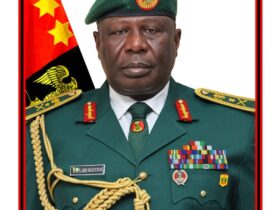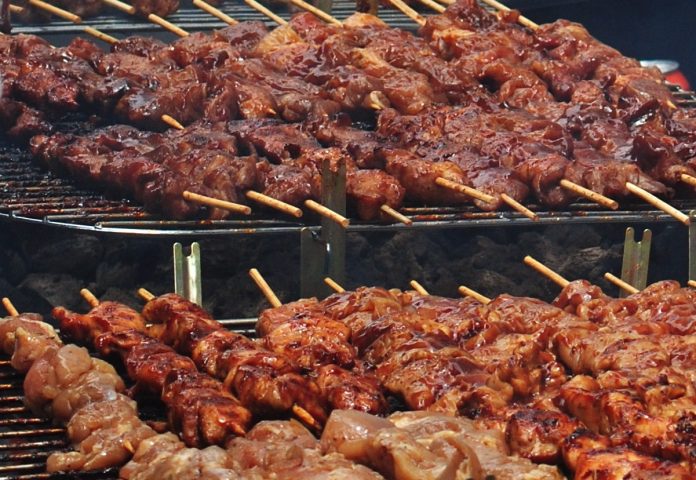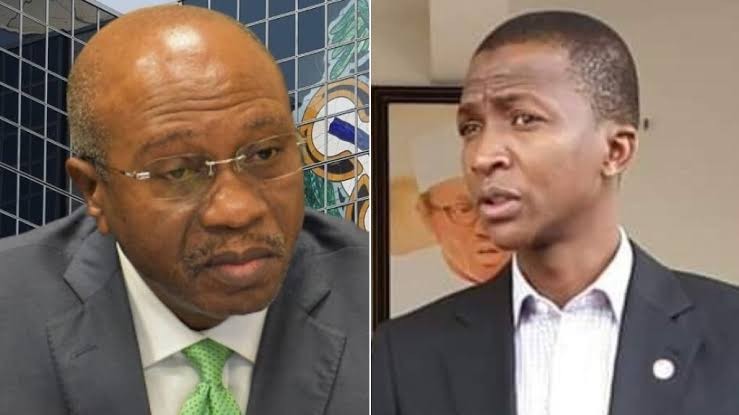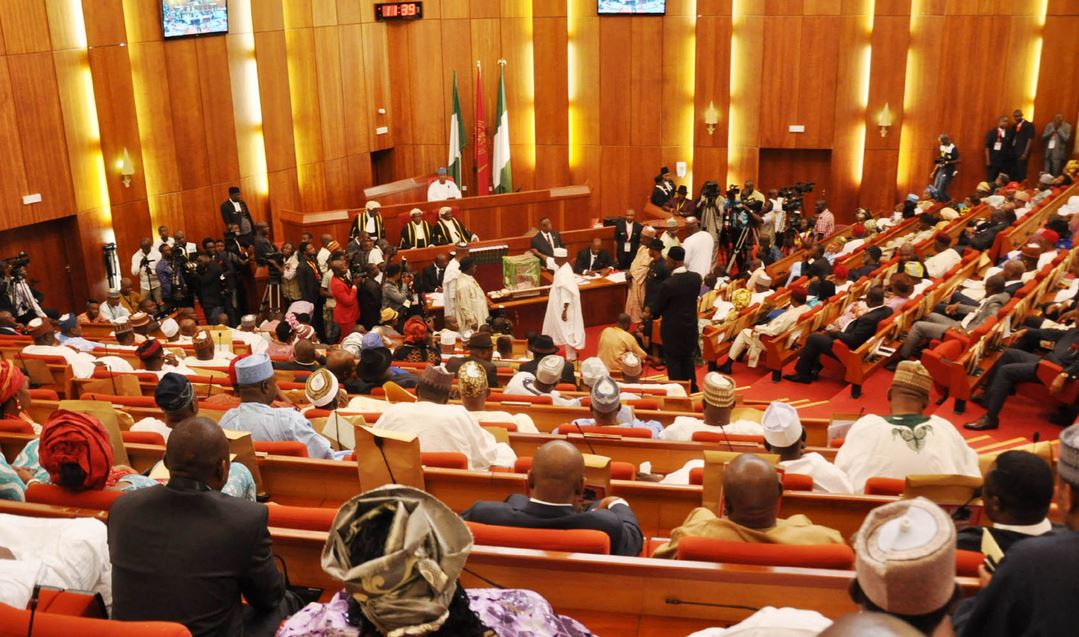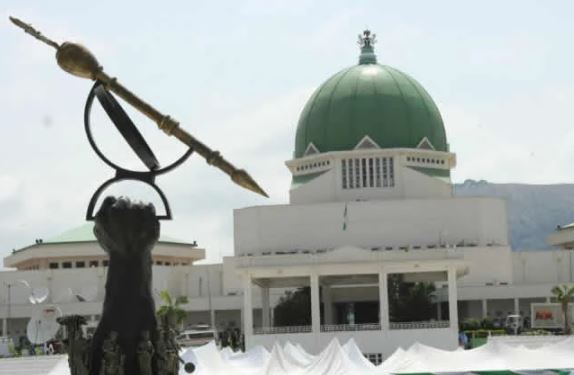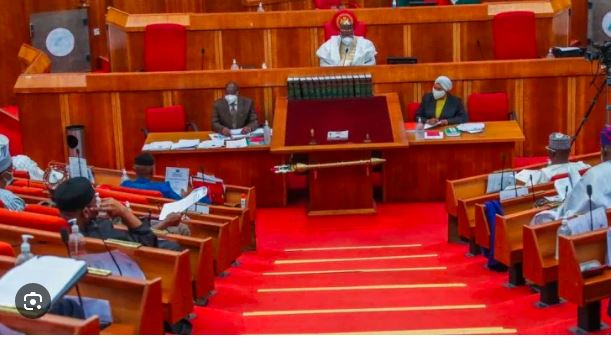INTRODUCTION
Politics and Law have been an age-long issue of discourse in governance and leadership. These are pivotal points revolving around every national question.
The essence of law is to prescribe laid down standards, rules and regulations for controlling affairs within the State. Intricate in this discourse is the modern idea of the doctrine of separation of powers found in one of the most important eighteenth-century (1748) works on political science, the Baron de Montesquieu’s Spirit of the Laws (1748), which states that:
“There can be no liberty where the legislative and executive powers are united in the same person, or body of magistrates … [or] if the power of judging be not separated from the legislative and executive powers.”
In Nigeria, constitutional powers under the 1999 Constitution, as altered, are shared amongst the three arms of government. While the Legislature makes law (section 4), the Executive implements the laws (section 5); and the Judiciary interprets them (section 6).
In a democratic setting, mutual respect within the arms of government is very sacrosanct. No arm of government is allowed to suppress, diminish, intimidate, or make nonsense of the other in all ramifications.
The executive has for too long been a bane on the legislature; but same cannot be compared to the affront it displays against the Judiciary, and the ordinary Nigerians. Little wonder, Alexander Hamilton noted thus:
” …The Judiciary Branch may truly be said to have neither FORCE nor WILL, but merely judgement; and must ultimately depend upon the aid of the executive arm even for the efficacy of it’s judgements.”
However, I have never been a disciple and adherer of the above quote, for I believe that even in silence, the Judiciary remains the shield of all – including the Executive and the Legislature.
The rule of law in Nigeria has suffered so much aberration, the most – being the brazen disobedience to Court orders.
In the Military Governor of Lagos State v. Ojukwu SC (1986) 2 LLER 2; All NLR 233, Hon. Justice Mohammed Lawal Uwais JSC (as he then was), on the dangers inherent in disregard for rule of law by the government, had this to say;
“If Governments treat court order with levity and contempt the confidence of the citizen in the courts will be seriously eroded and the effect of that will be the beginning of anarchy in replacement of the rule of law. If anyone should be wary of orders of court it is the authorities; for they, more than anyone else, need the application of the rule of law in order to govern properly and effectively.”
In the same vein, Lord Atkins in LIVERSIDGE vs. ANDERSON (1942) AC 206, opined thus:
“Amidst the clash of arms, the laws are not silent. They may be changed, but they speak the same language in war as in peace. It has always been one of the pillars of freedom, one of the principles of liberty for which recent authority, we are now fighting that judges are no respecters of persons and stand between the subject and any attempted encroachments on his liberty by the executive, alert to see that any coercive action is justified in law”.
So many instances abound to show the persistent disobedience of Court orders by the executive arm of government. The executive branch has since become like wizards and witches, operating in a dark coven – witch-hunting some targeted persons in blatant disregard to whatever orders a court may have made.
The recent travails of the former Executive Chairman of the EFCC, Abdulrasheed Bawa and the former Governor of the Central Bank of Nigeria (CBN), are not far from executive witch-hunt, bordering on palpable executive lawlessness and rascality. It is indeed pitiable that after all the ills perpetrated by the Buhari-led administration, only these two have been singled out to become EXECUTIVE VICTIMS.
ABDULRASHEED BAWA: WHAT IS HIS OFFENCE?
On February 24, 2021, former civilian dictator and ethnic warlord, President Muhammadu Buhari, appointed the 43 years old Bawa (born April 30, 1980) as the Executive Chairman of the EFCC, to replace the then suspended former chairman, Ibrahim Magu. The young man appeared to have taken to a higher notch, the ante of graft agency governance structure, by reducing media trial, political hype and the “name-and-shame” mantra glorified by Buhari and his Propaganda maestro, Lai Mohammed (who would make Hitler’s Goebel green with envy from his second World War cold grave of the Nazi Germany third Reich (1933-1945). Or, so we thought, until 14th June, 2023, when the new strong man and Sheriff in town, Asiwaju Bola Ahmed Tinubu, came in view. On that Ceasar’s “Ides of March”, Bawa was promptly picked up by Nigeria’s usually hooded secret Police, the Department of State Security Service (DSS).
The DSS gave its reason as an invitation relating to “some investigative activities concerning him”. I thought under the National Securities Agency Act, 1986, the DSS is only responsible for national security matters. Do these include economic crimes for which the EFCC (Establishment) Act, 2004, was promulgated, with Bawa heading it? I do not know. Or, do you?
Nearly two months later, Bawa remains kept in captivity, in the DSS gulag. I thought section 35 of the 1999 Constitution, as amended, provides for only one day (24 hours) incarceration when there is a court of competent jurisdiction within a radius of forty kilometers from the Police Station; and where there is no court within a 40-kilometers radius from the station, the time is a period of 2 days (48 hours); or any longer period which the court considers reasonable given the particular circumstances of the case. See the case of AMOS & ORS V. DANIEL & ORS (2023) LPELR – 60454 (CA). The DSS, through its Director of Information, Willie Bassey, cited “weighty allegations of abuse of office levelled against him”, as the reason for Bawa’s continued captivity. This continued detention without trial is barbaric, atrocious and unconscionable, to say the least. Are we still living in the early caveman Australopithecus era? I do not know. Or, do you?
Till date, the DSS has not told Nigerians what Bawa’s specific offences are (if any), or the level of “investigation”. Investigation? Mtchew! Even if he committed some infractions of the law, can illegality beget legality? Can two wrongs make a right? Can the DSS continue to be the accuser, arrester, detainer, investigator, prosecutor and the Judge? What is going on here? The last time I checked, even amongst mad people, there is orderliness. DSS, for God’s sake, and for the sake of decency and our constitutional democracy, release Bawa immediately and forthwith. Haba!
GODWIN EMEFIELE – DID HE COMMIT MURDER?
Emefiele’s sad tale has further amplified the saying that, “…he who sups with devil, should have a very long spoon.” The meaning of this quote, varies, but i resolve it in this circumstance to mean, he who dines with the devil should maintain a long distance. Mr Godwin Emefiele, one of the longest serving Governors of the CBN, a refined and brilliant banker, Economist and politician at heart, is simply an “Executive Victim”, or victim of executive lawlessness and rascality. as a result of the unpalatable “feast” he had with the Buhari government. I wish he had had the opportunity to read my “Buharocracy.”- How Buharocracy put Nigeria in throes, by Prof. Mike Ozekhome, SAN.
If he had, he probably would have done things differently.
THE MANY YET UNSUBSTANTIATED “SINS” OF EMEFIELE IN CIRCULATION
A flip through many publications of media outlets, shows how Nigerians are so hard on and crazy about Emefiele, majorly because of the hardship some monetary policies he introduced have subjected Nigerians to.
Amongst others, Emefiele has been serially accused of plunging the nation’s currency to a zero level. The Naira which was exchangeable at about N190 against US dollar before Buhari’s arrival, now exchanges for N800.00. that he was allowing unscrupulous elements with access to the import and export window (people who profit robustly from currency arbitrage and round-tripping). He was also accused of attempting to succeed Buhari, irrespective of his occupation of a very vital and juicy office such as the CBN Governor. They accused him of releasing only $17 million, and abandoning $53 million in unpaid debt; of failure to curb inflation despite the amount of trillions spent (the surge in inflation hit 22% in 2023). The most daring to Nigerians was the Naira Currency Swap/printing. N22 trillion was reportedly spent on reprinting which allegedly threatened the corporate existence of Nigeria, and sent so many to early graves. May their Souls rest in perfect peace, Amen.
All these and many more are the scares on Emefiele. I have still not heard anyone accuse Emefiele of stealing trillions of Naira like many of Buhari’s acolytes. I did not hear that he was involved in any coup attempt, or in kidnapping, armed banditry, or armed robbery. I am yet to hear that Emefiele committed murder. Even in these capital offences, a Judge can still grant bail to an accused person under certain circumstances as provided for in section 161 of the ACJA. See the cases of ABACHA V. THE STATE & ORS (2002) 5 NWLR (Pt. 761) 638 and NWAKANMA V. STATE OF LAGOS (2020) LPELR-50107 (CA). So, the questions still remain unanswered: were all these acts complained about in Emefiele’s own accord alone? Could Emefiele have taken these decisions alone without former President Buhari’s backing? Can someone clap with one palm? Why punish the messenger and save the principal sender? Is this not selective justice? Is it because of where he comes from? Could this have happened to a Northerner given the same extenuating circumstances? I do not know. Or, do you?
THE TRAVAILS OF EMEFIELE: EARLY ALLEGATIONS AND COURT INTERVENTION
On December 19, 2022, Hon. Justice Tsoho, Chief Judge of the Federal High Court sitting in Abuja, declined an application by the DSS to arrest and detain Emefiele. This was as a result of the allegation leveled on Emefiele in respect of alleged terrorism financing and economic crimes. Emefiele, was accused of funding “unknown gunmen” and members of the outlawed Indigenous People of Biafra (IPOB), by the State Security Service (SSS).
The learned Justice noted that, there was no concrete evidence to substantiate the claims that Emefiele was involved in the alleged crimes. The application was dismissed on the grounds of lack of evidence. The secret Police had no confidence in their own investigation. In other words, it was a mere witch-hunt, the beginning of a long story. Methinks so, don’t you?
Again, on December 29, 2022, Hon. Justice M. A. Hassan, of the Federal Capital Territory (FCT) High Court sitting in Maitama, issued an order restraining the DSS from arresting Emefiele.
The Incorporated Trustees of Forum for Accountability and Good Leadership, as Applicants, had filed an application against the DSS and the Economic and Financial Crimes Commission (EFCC), as Respondents, to restrain the arrest of Emefiele by the two operative agencies.
The Court ruled that the “continuous harassment” of Emefiele over “trumped-up allegations of terrorism financing and fraudulent practices” was unwarranted and oppressive, as there were no evidence to substantiate the allegations of terrorism.
THE JUDICIAL COURT AND PUBLIC COURT
At the FCT High Court, EFCC in a counter affidavit, denied having any business with Emefiele, as he was not under their investigation. In fact, they alluded to the fact that the continuous harassment of Emefiele was illegal as it was without legal basis.
Meanwhile, Emefiele traveled outside Nigeria before the 2022 Christmas, for his annual vacation, with the imprimatur of his Boss, Buhari. He returned in mid-January.
Due to the ugly developments around Emefiele’s crisis, the Presidential Campaign Council of the Peoples Democratic Party (PDP) alleged that some politicians were behind the travails of the now-suspended CBN governor.
The leadership of the party said those who were “after” Emefiele should be careful of its implications on the country’s economy: “This is especially on the backdrop of apprehensions that inordinately ambitious politicians that run activities with bullion vans and raw cash are out to destroy the nation’s financial institutions, particularly, the CBN, for their selfish political interests.”
At the peak of these, the Mass Interest Project, a coalition of civil society organisations (CSOs), raised an alarm that the life of Emefiele was under threat. It was alleged that the threat to his life was linked to politicians who were against the new CBN cash policy.
The Emefiele saga raised so much dust and ruckus in the polity that drew the interest of many ethnic organisations. The Southern and Middle Belt Leader’s Forum (SMBLF), while calling for the sack of Yusuf Bichi, the DSS Boss, asked, “What is the evidence that the governor of the Central Bank of Nigeria, Mr Godwin Emefiele, is involved in “terrorism financing”? If the allegations against the CBN governor are genuine, why didn’t the DSS present its findings to the president for consideration and necessary action?”

